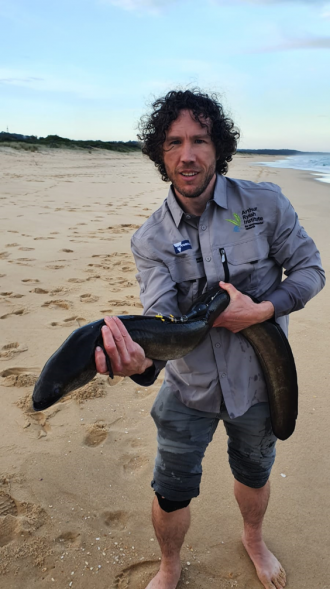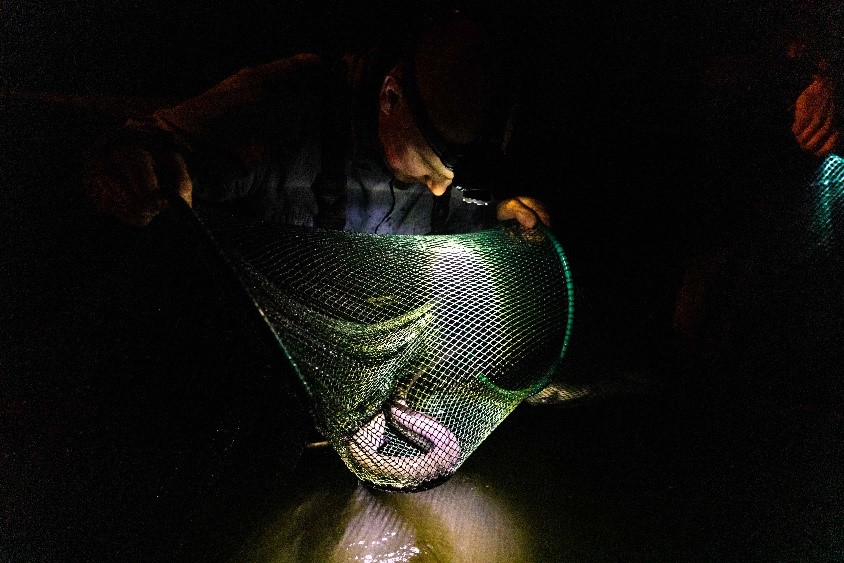Media release
From:
Additional information, Dr Wayne Koster (lead author, Fish Ecologist, Arthur Rylah Institute for Environmental Research):
* This is the first example worldwide where eels have been tracked long-distance into a suspected spawning ground.
* This study has generated significant new information on oceanic migration patterns and spawning areas. Tagged eels were tracked for up to 5 months and up to several thousand kilometres from their release site, including to near a presumed spawning area in the South Pacific Ocean. Migrating eels displayed regular migrations in the water column between shallow water at night and deep water during the day, up to 1km deep.
* Eels are important; ecologically, culturally, economically. Ecologically, they are a top-order predator in freshwater streams. They have a particular cultural significance to First Nations People. For example, the Gunditjmara people built complex aquaculture systems throughout the Budj Bim cultural landscape in southwest Victoria at least 7000 years ago. This landscape has been added to the World Heritage List. Eels also support valuable commercial fisheries, including in Gippsland.
* Eel populations have declined dramatically in recent decades in many regions of the world, for many reasons, including habitat loss and barriers to movement.
* Little has been known about eel oceanic migration, particularly their spawning grounds. A critical life history phase is their migration from freshwater rivers to spawn in distant oceans. To support eel recovery, we need to know more about their life cycle..
* We explored the oceanic spawning migrations of the Australasian short-finned eel (Anguilla australis) using pop-up satellite archival tags. We are doing this work in collaboration with Gunditjmara Traditional Owners, and collecting eels from the Hopkins and Fitzroy River estuaries in south-east Australia. We have also collected eels from Metung in Gippsland.
* This information is critical to improved management of eels, such as understanding the population potential impacts of climate change e.g. changes to ocean temperatures and currents on migratory patterns and suitability of spawning areas.
* This project is a collaboration between DELWP, the Gunditjmara Traditional Owners, and Melbourne Water. Professor Kim Aarestrup from Denmark is also involved in this work.
Additional Links
· ARI Seminar - Uncle Dennis Rose & Dr Wayne Koster | Eel migrations
Multimedia






 Australia; VIC
Australia; VIC



